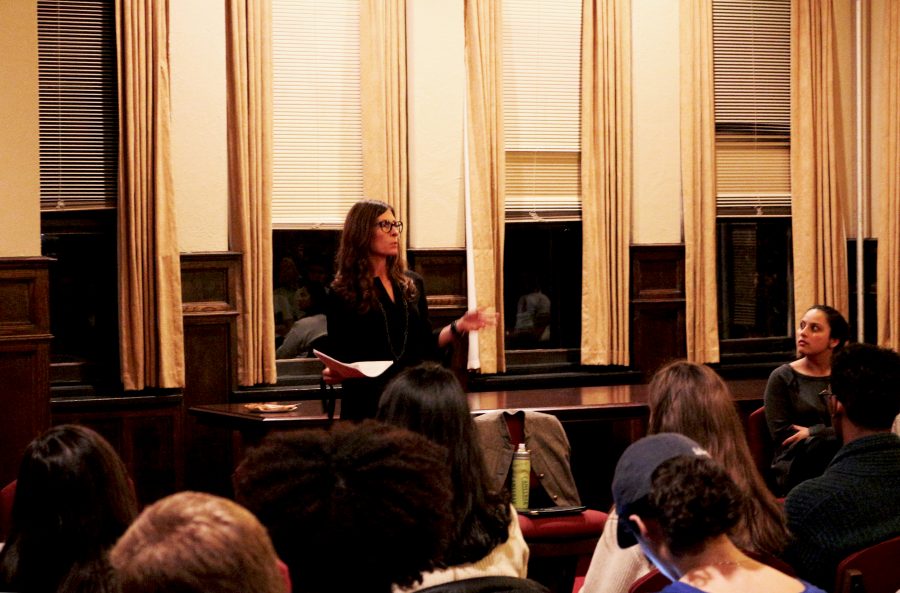Title IX and Compliance Officer from Moravian College Leah Naso Breisch addressed uncertainties and misunderstandings surrounding sexual assault policy changes on college campuses in her talk at the college this week. Pards Against Sexual Assault, a student group devoted to raising awareness and preventing sexual violence on campus, hosted the event.
Breisch made an effort to specifically outline what has changed under President Trump and Education Secretary Betsy DeVos.
“What we’re dealing with right now with what’s happening with our government is they’ve rescinded what we call the 2011 Dear Colleague Letter,” Breisch explained. This letter required college campuses to deal with rape in an specific and effective way, and to have a person on campus whose job is to deal with sexual assault specifically.
“This event really broke down what Title IX is really about,” member of the executive board of Pards Against Sexual Assault Nahin Ferdousi ’19 said. “This really just cleared the air.” She added that Breisch helped her “understand what the new changes are with the new administration.”
Earlier this month, DeVos announced her intent to enact new rules that would change several Obama-era policies regarding sexual assault cases on college campuses. Chief among the changes has to do with the amount of evidence needed to decide the accused is guilty.
This announcement will not affect policies at Lafayette, Vice President of Campus Life Annette Diorio said.
The question of what the permanent guidance from DeVos is going to look like is what troubles Breisch, she said.
“That’s the piece that scares me a little bit because we don’t know what direction that is going,” she said.
However, the message that Title IX coordinators are hearing is to keep moving forward, because they are already doing what they need to be doing, Breisch said.
“What we’re hearing from [Association of Title IX Administrators] is [to just stay our course]. It’s in our own guidance [and] it’s not actual law at this point. We’re going to sit tight, and we will wait and see in the next 12-18 months as this law-making process keeps moving forward,” she said.
“Title IX coordinators aren’t going away even if our job title doesn’t exist the way that it does today, there’s going to be a point person on every campus who’s still pushing these responses and resolution options forward for students,” Breisch added.
Lafayette is still in search for a replacement for former Title IX Coordinator Amy O’Neill. Director of Human Resources Lisa Rex is currently serving as the interim Title IX coordinator while the search continues.
Several members of the audience had the opportunity to ask Breisch questions during the discussion. Dean of Equity and Inclusion Chris Hunt asked how the changing guidance from the Department of Education is being received by colleges across the nation.
Breisch had met with other Title IX coordinators on a national level to discuss the changes and their implications for going forward.
“There is this sense that while the reasoning may… be something we don’t all agree with, the changes that have been proposed in the interim don’t significantly change what most campuses are already doing in reality, and they do provide some additional opinions for survivors and they do provide some additional process in equity rights to responding parties,” Breisch explained.
Michelle Polton-Simon ‘19 raised concerns about how to report sexual assault effectively, and why a student should choose to report through the school rather than through a legal system.
In response, Breish noted the neutrality of investigation policies that exists on college campuses.
“When you’re looking at a criminal process there’s a whole different angle to interviewing and evidence collection and interrogation and things like that happens that don’t happen in our process. So I want students to understand how these pieces work differently before they make a decision,” she said.
If colleges’ current processes are strong and provide adequate and equal representation to both parties involved, along with survivor support resources, Breisch also said they most likely won’t have to make any changes.




































































































